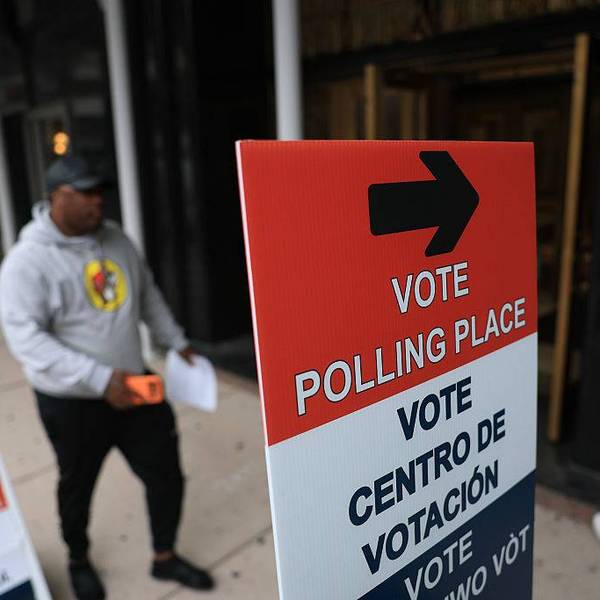Enthused by the turnout in the Iraq elections last Sunday, a friend of mine wondered if democratic elections in Iraq and the Middle East would likely bring about a pro-American result. I told him the demands for an end to the U.S. occupation of Iraq and a cessation of our long-term Machiavellian military adventures in that part of the world will only increase with democratic elections.
U.S. media and the Bush administration have hyped the Iraq vote as a victory for "freedom" and justification for the Iraq war since the previous pretenses of Iraq having weapons of mass destruction and ties to 9/11 have been exposed as prevarications. The U.S. is viewed as a colonial power by most Middle Easterners, interested in the vast oil reserves of the region with a record of supporting dictatorial regimes and pitting one nation or ethnic group against the other.
We never have pushed for democratic elections in Saudi Arabia, a despotic monarchy with the largest oil reserves in the world that produced 15 of the 19 terrorists who perpetrated the 9/11 attacks. President Franklin Roosevelt cut a deal for their oil with the royal family there in the early 1940's.
Osama bin Laden, a very wealthy Saudi, was recruited and supported by the U.S. Central Intelligence Agency (CIA) to help the U. S. overthrow the Soviet Russian puppet government in Afghanistan and install the Taliban regime. This bloody insurgency lasted from 1979 until the Soviet's departure in 1988. Bin Laden and his Al Qaeda cohorts from Saudi Arabia were the conspirators who organized the 9/11 attacks on the U. S. , and since they were based in Afghanistan we have taken military action to control Afghanistan once again. Here, as in Iraq, we have staged "free elections" at-the-point-of-guns.
In 1953, the U.S. CIA helped organize the overthrow of the democratically elected government of Mohammed Mossedegh in Iran. Britain had dominated Iran and controlled their vast oilfields for many years. . After WWII, the British chose the decadent Reza Shah as ruler. The Shah was democratically deposed by the Iranian parliament and Mohammad Mossedegh was elected Premier. Mossedegh nationalized Iran's oilfields and the British and the U.S. CIA ousted him in 1953. The Shah of Iran was returned to power and ruled as a dictator funded by the US. His regime was corrupt and brutal. Little of the vast wealth amassed from sales of oil benefited the everyday people of Iran. Finally the Shah was forced to abdicate due to unrest in the country. This left a vacuum for radical Islamist Ayatollah Khomeini, who took over power. Alarmed at the emergence of a fundamentalist revolution in Iran which led to the taking over of the U.S. embassy and the taking of U.S. hostages, the US backed and armed Saddam Hussein's Iraq to fight Ayatollah Khomeini. This helped precipitate the Iran-Iraq war which lasted eight years and left one million people dead.
The Iranians hate the US because we deposed the Mohammad Mossedegh and reestablished the brutal Shah as dictator. The U.S. then supported Iraq in a war that was all about capturing the Iranian oilfields for Iraq.
The U.S. policy makers who have engineered our foreign policy don't give a damn about democracy in the Middle East. The people in those countries know that, through bitter experience. Many would welcome democracy in their countries but not at-the-point-of-guns aimed at them by the oil hungry U.S.
The United States is so addicted to relatively cheap Middle Eastern oil that Iraq's giant oil reserves were just too much to resist. U.S. foreign policy in the Middle East as it relates to Iran, Saudi Arabia and Iraq has clearly been about oil for well over 60 years. The Israeli/Palestinian conflict is a convenient exacerbating sideshow that helps to dehumanize Arabs so it is easier to wage wars of "liberation" that kill innocent Arab civilians. Our policy makers do not really care about freedom for the average person over there, they just want U.S. taxpayers and voters to think we are doing a good thing by spending all that money to control Iraq and its oil reserves, even if we have to kill a hundred thousand or so folks in the process..
War is not the answer and never has been. There has always been big money to be made in war profiteering and the conquest and control of the land and resources of other peoples such as the Iraqis. The market for weaponry and "defense spending" is created through fear and the 9/11 attacks furnished a pretext for a campaign of fear and war against Iraq. We should spend more time promoting peaceful solutions to global problems rather than glorifying and romanticizing war that slaughters innocent civilians.
Rather than continuing our imperialistic adventures to maintain the flow of cheap oil from the Middle East, we could establish our own freedom from eco-system eradication caused by frenetic fossil fuel consumption. If we devoted even a small portion of the resources we expend in our militaristic and malevolent adventures in the Middle East to developing energy conservation and renewable energy sources, we might be able to avert the looming eco-disaster of global warming.
President Bush could establish a wonderful legacy of peace and freedom for himself and the world if he ended our oil-oriented occupation of Iraq and focused our considerable resources on renewable energy sources like wind, solar, geo-thermal, bio-mass, hydro-power, and wave, tidal and ocean energy, along with developing fuel cells and alternative fuel vehicles.



